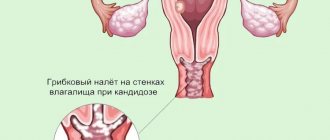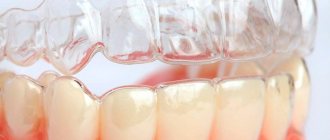The term “heartburn” usually refers to a burning sensation in the chest or throat, usually accompanied by a feeling of bitterness in the mouth. Typically, such an unpleasant condition occurs soon after eating.
However, the duration of a heartburn attack can vary significantly: the discomfort can last from a couple of minutes to several hours. In the latter case, painful sensations come “in waves,” either subsiding or resuming with renewed vigor.
When carrying a child, heartburn is a fairly common phenomenon, provoked, among other things, by physiological changes in the body and the release of new hormones into the blood that are still unfamiliar to the body. According to statistics, about 80% of expectant mothers experience the described ailments. Most often, symptoms of heartburn during pregnancy occur in women in the second trimester of pregnancy.
What causes heartburn during pregnancy?
Heartburn during pregnancy occurs due to hormonal changes.
In general, many different factors can provoke heartburn. If we are talking about a patient who is “pregnant,” the root cause of this disease will most likely be due to the current stage of pregnancy.
However, several general points can be identified that adversely affect the gastrointestinal tract of the expectant mother, regardless of the actual trimester:
- Changes in hormonal levels. Progesterone, actively produced by the body of any pregnant woman, designed to relax the muscles of the uterus and prevent its hypertonicity, similarly acts on the sphincter, which prevents the contents of the stomach from entering the esophagus. The said body ceases to perform its functions properly, which leads to quite predictable consequences. The feeling of heartburn in this case is a completely natural reaction of the nerve endings to the entry of “inappropriate” gastric juice into the esophagus.
- Increased intra-abdominal pressure. In this case, heartburn is also the result of gastric juices entering the esophagus. However, this time the reason for the dysfunction of the sphincters between the organs is their compression. A similar effect occurs in the last trimester of pregnancy as a result of significant enlargement of the uterus.
- Digestive dysfunction. Changing the level of hormones in the body inevitably affects the functioning of all organs of the gastrointestinal tract. In particular, under the influence of progesterone, the acidity of gastric juices can increase, which in itself can cause discomfort in the sternum. In addition, the process of digesting food in the body of a pregnant woman requires much more time than it would take if we were talking about a patient who was not “pregnant.” Thus, by eating the dishes that are familiar to her, the expectant mother almost always dooms herself to an upset stomach, often accompanied by heartburn.
Under the influence of one or more of the factors described above, a pregnant woman may feel a burning sensation and pain behind the sternum or in the esophagus, as well as detect other characteristic signs of the described disease.
In particular, these include sour or bitter belching, excessive salivation, accompanied by a desire to cough, nausea and, finally, bloating. As mentioned above, the manifestation of such symptoms during pregnancy is absolutely normal, although it causes some discomfort.
There will be no particular harm from heartburn either for the expectant mother or for the fetus she is carrying. Therefore, if a woman showed signs of this disease only during pregnancy, she does not necessarily need to visit a doctor about this. She can get rid of the unpleasant symptoms of heartburn on her own.
Plaque in the mouth and bitterness as signs of disease
Bitterness in the mouth can be a sign of gastritis and peptic ulcers.
During the examination at the appointment, the doctor will definitely ask the patient to show his tongue: based on plaque, if it is combined with a feeling of bitterness in the mouth and abdominal pain, the doctor will receive more accurate information about the existing pathology.
For various diseases of the digestive system, the following clinical picture may be observed:
- A variation of the norm is the appearance of white plaque, which can be easily removed with a toothbrush. It usually indicates an excess amount of sugary foods in the diet and an increased amount of bacteria in the mouth. However, he speaks of the absence of serious pathologies in the digestive process.
- A feeling of bitterness combined with the appearance of a dense white-gray plaque is a sign of gastritis and gastric ulcer; such plaque often accompanies heartburn. A characteristic sign is the absence of plaque on the tip of the tongue.
- If a dense white coating accumulates at the base of the tongue, it usually indicates chronic gastritis. It is often accompanied by bloating, constant heartburn, and a bitter taste in the mouth.
- If there is a yellow coating with a greenish tint, this is clear evidence of liver pathology and gallbladder function. This is an alarming sign and the patient needs immediate medical attention.
A coating on the tongue also often appears in smokers; it also occurs along with an unpleasant taste in the mouth after drinking alcoholic beverages.
If unpleasant sensations occur systematically, it is necessary to consult a therapist for examination: the doctor will refer the patient to a gastroenterologist and endocrinologist, after which appropriate treatment will be selected.
How to treat heartburn in pregnant women?
Heartburn during pregnancy can occur from poor nutrition.
Since heartburn at each individual stage of pregnancy occurs under the influence of a unique set of factors, when choosing the appropriate treatment, you should be guided, first of all, by information about the current trimester of gestation.
For example, in the early stages, expectant mothers usually suffer from the described disease due to non-compliance with basic nutritional standards.
At the same time, in the third trimester, heartburn occurs solely due to the “unsuccessful” location of the fetus in the uterus.
It is clear that fighting the manifestations of these two fundamentally different types of disease using the same methods would, at a minimum, be ineffective. How exactly it is worth treating heartburn at one or another stage of gestation is described in detail below.
Treatment of heartburn in the first and second trimesters of pregnancy
If you have heartburn in pregnant women, you need to consume more dairy products.
The main cause of indigestion and, as a consequence, heartburn in early pregnancy is an incorrectly selected diet.
Excessively spicy and fatty foods, an excess of fried foods, and the lack of a basic nutritional schedule will almost certainly lead to a burning sensation in the esophagus, gradually turning into nausea and vomiting syndrome. How to deal with this?
Practice shows that in order to get rid of heartburn that occurs in the first trimester of pregnancy, it is usually enough for the expectant mother to start adhering to some simple rules governing food intake. So, for a woman bearing a fetus it will be useful:
- switch to fractional meals;
- review your diet, choosing lean meat, dairy products and fresh vegetables;
- learn new methods of preparing your favorite, but not very healthy dishes using a double boiler;
- completely give up “harmful things” like carbonated drinks, sweet mineral water or coffee;
- get rid of the habit of washing down food, which is dangerous for the stomach, replacing it with thorough chewing of food.
With the onset of the second trimester of pregnancy, the expectant mother should continue to adhere to these simple rules. Among other things, she will have to forget about overeating. The fact is that, as the baby grows in her womb, a woman may feel the desire to gradually increase the amount of food she eats.
However, this feeling is deceptive and even dangerous. After all, the larger the fetus becomes, the more intrauterine pressure “jumps” and, accordingly, digestion slows down. Of course, all of the above does not mean that a pregnant woman should go on a strict diet and generally limit herself in every possible way in food. An acceptable way out of the situation would be to switch to more frequent meals, but with reduced portions of food.
Associated symptoms
In some cases, the appearance of bitterness indicates the presence of pathologies in the body of the expectant mother. During pregnancy, old diseases often “reawaken.” This is due to increased stress on organ systems. Symptoms that require immediate medical attention:
- nausea;
- the appearance of edema;
- change in skin color;
- vomit;
- abdominal pain.
As a rule, discomfort occurs after eating fatty, fried foods or as a result of overeating. Symptoms persist for several hours after eating. They may be signs of gastritis, liver or gallbladder diseases. In this case, you need to make an appointment with a gastroenterologist to conduct the necessary examination.
Treatment of heartburn in the third trimester of pregnancy
In the third trimester of pregnancy, you need to follow a special diet.
In the later stages of pregnancy, heartburn is usually a consequence of an incorrect breech presentation (buttocks down) of the fetus.
This happens if a woman is expecting several children at once, or when the only child turns out to be too large.
In both described cases, the baby’s fully formed head puts pressure on the mother’s diaphragm, causing the latter discomfort in the sternum or even pain.
Unfortunately, it is impossible to completely get rid of this kind of heartburn until the baby is born. But it is quite possible to significantly alleviate attacks of the disease by following the previously discussed diet and basic daily routine.
In addition, there are several additional “secrets”, knowledge of which will help reduce the frequency of heartburn exacerbations to a minimum. The essence of all the methods described below is to, if possible, reduce the pressure on the internal organs of a pregnant woman:
- Shortly before giving birth, a woman should completely update her wardrobe. So, the clothes of the expectant mother should be loose, not restricting movement and not constricting. Correct posture and well-chosen body position during rest and sleep will help reduce the outflow of gastric juice into the esophagus. For example, before getting into bed, a pregnant woman should place several pillows under her head and shoulders to keep her upper body elevated.
- Following a diet is the best prevention of heartburn. Fractional meals in small portions throughout pregnancy are highly likely to help avoid this disease altogether. If it is difficult for the expectant mother to adhere to a strict eating regimen, at least she should still remember one rule - any food less than three hours before going to bed is taboo! The digestive process in pregnant women generally occurs with some complications, so making it even more difficult with an afternoon rest is strictly prohibited!
If the expectant mother feels an urgent need to lie down soon after eating, this must be done in a strictly defined manner. Thus, it is believed that sleeping on the left side with your knees bent and a pillow placed between them does not have such a negative effect on the digestion process as “lying down” rest in any other positions.
Some foods, such as papaya, have a soothing effect on the stomach and therefore can be excellent tools to combat heartburn.
At the same time, other foods, such as baked goods, animal fats, as well as sour fruits and berries, only cause irritation of the mucous membrane of the mentioned organ by stimulating the production of hydrochloric acid, so it is better to completely avoid eating it.











